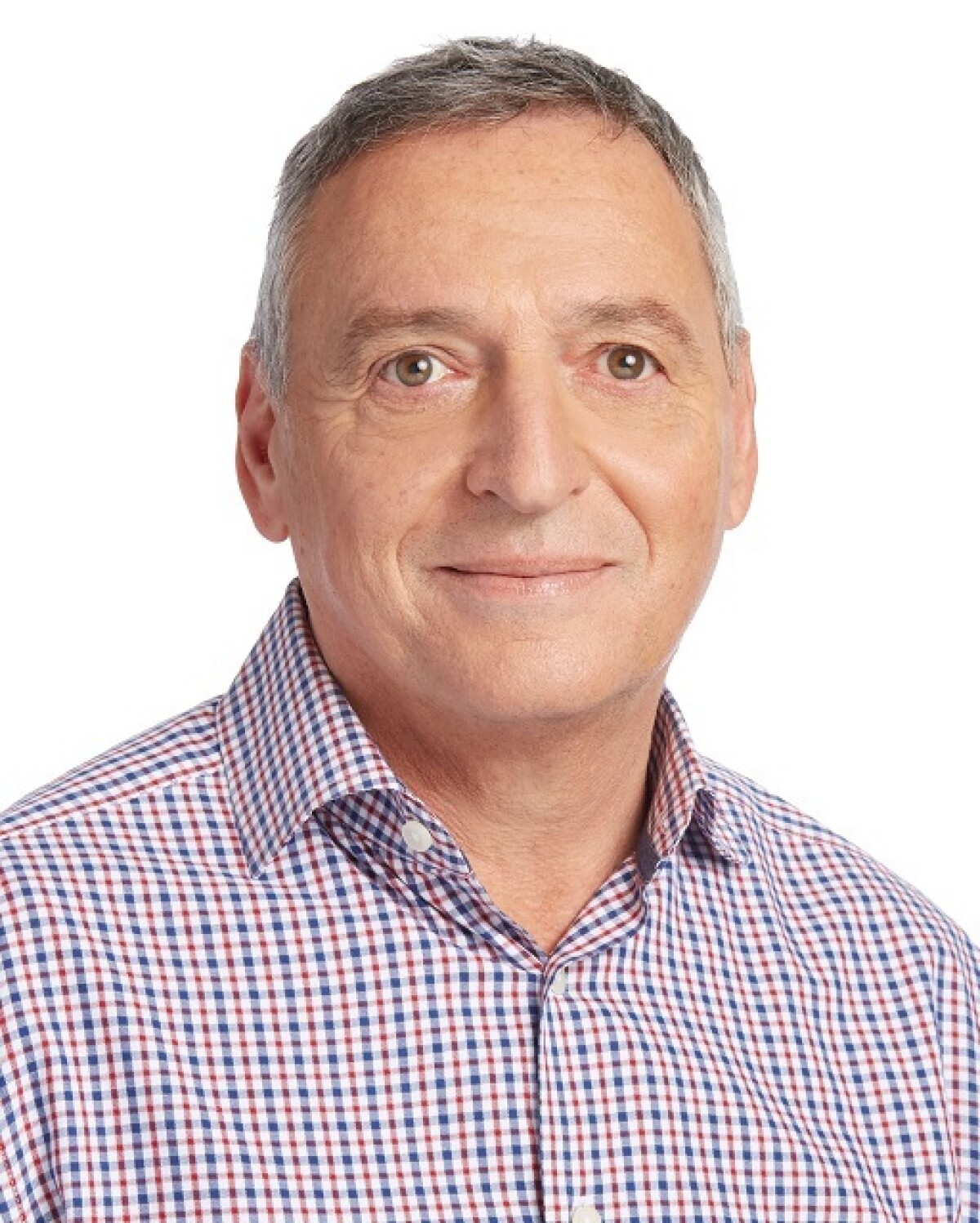Kostas Bimpikis honored with the Revenue Management and Pricing Section Prize
Kostas Bimpikis, an Amazon Scholar working with Amazon Flex, won the 2022 INFORMS Revenue Management and Pricing Section Prize for the 2019 paper, “Spatial Pricing in Ride-Sharing Networks”.

The paper, coauthored by Ozan Candogan, professor of operations management at the University of Chicago, and Daniela Saban, associate professor of Operations, Information, and Technology at Stanford, was awarded for being “the best contribution to the science of pricing and revenue management published in English.”
The paper, published in Operations Research in 2019, explores “spatial price discrimination in the context of a ride-sharing platform that serves a network of locations.” The paper addressed the issue of location-based pricing and found that, by setting different prices across their networks, ride-sharing companies and drivers would benefit from more balanced demand patterns.
The award was presented at INFORMS 2022, the world’s largest operations research and analytics conference.
Bimpikis is an associate professor of Operations, Information, and Technology and a Winnick Family Faculty Scholar at the Stanford Graduate School of Business.
Bimpikis, who joined Amazon as a Scholar in July 2020, also currently serves as an associate editor for Management Science, Operations Research, and Manufacturing and Service Operations Management.
Anton van den Hengel earns Pattern Recognition Journal’s Best Paper Award
Anton van den Hengel, Amazon director of applied science, has won Pattern Recognition Journal’s Best Paper Award for a 2019 paper on deep-learning architectures.

The paper, “Wider or Deeper: Revisiting the ResNet Model for Visual Recognition”, undermined conventional wisdom by demonstrating that increasing depth may not be the best way to improve the performance of a deep neural network. Van den Hengel, who was also a professor of computer science at the University of Adelaide, coauthored the paper with fellow university researchers Zifeng Wu and Chunhua Shen.
Since its publication, the paper has received more than 1,000 citations. The model published with the paper has been included in many primary deep learning packages and in MATLAB.
Van den Hengel joined Amazon as director of applied science in March of 2020. At Amazon, he leads a research team working in machine learning and computer vision, with specific focus on vision and language, as well as on natural language processing.
Van den Hengel was the founding director of the Australian Institute for Machine Learning (AIML), Australia’s first institute dedicated to machine learning research. He continues to work part-time as director of AIML’s new Centre for Augmented Reasoning, whose mission is to build core artificial intelligence (AI) capability in Australia.
Established more than 50 years ago, Pattern Recognition accepts papers that make original contributions to the theory, methodology, and application of pattern recognition.
Sergei Kalinin named an Asia-Pacific Artificial Intelligence Association fellow and winner of Foresight Institute Feynman Prize in Experiment
Sergei Kalinin, an Amazon principal research scientist, has been named a fellow of the Asia-Pacific Artificial Intelligence Association (AAIA).

The AAIA selected Kalinin for his “outstanding achievements in the area of application of machine learning and artificial intelligence in atomically resolved and mesoscopic imaging.”
Traditionally, mesoscopic imaging allows scientists to explore objects ranging from materials microstructure to organization of biological tissues. Kalinin applied mesoscopic imaging to guide the development of advanced materials for energy and information technologies.
Kalinin earned his master’s degree in materials science from Moscow State University in 1998. He went on to earn his PhD in materials science from the University of Pennsylvania in 2002. He spent nearly 20 years at Oak Ridge National Laboratory (ORNL), where his initial research centered around scanning-probe microscopy methods for probing ferroelectric and energy materials, including batteries and fuel cells. In 2016, Kalinin began working on machine learning methods in electron microscopy for applications such as real-time image analytics, automated and autonomous microscopy, and direct atomic fabrication.
Kalinin left ORNL in March of 2022 to become a research professor at the University of Tennessee, Knoxville. At that time, he also joined Amazon as a principal research scientist working on special projects. In addition to AI, his areas of interest include photovoltaics, physics, and electrochemistry.
Kalinin also has served on the board of directors of the Materials Research Society and in 2019 was a founding member of the American Physical Society Topical Group on Data Science. He is a fellow of the American Physical Society, Materials Research Society, the Institute of Physics, the Institute of Electrical and Electronics Engineers (IEEE), and AVS: Science and Technology of Materials, Interfaces, and Processing (formerly the American Vacuum Society).
The AAIA is a nonprofit, nongovernmental interdisciplinary organization of industries that use AI in their applications, such as computing, communication, medical, transportation, agriculture, and many others. Incorporated in Hong Kong in 2021, the organization’s primary mission is to help scientists enhance the development and application of AI through academic research, exchanges, conferences, publications, and other activities.
Additionally, Kalinin recently won the 2022 Foresight Institute Feynman Prize in Experiment for his work in nanotechnology.
Nanotechnology studies materials and systems by focusing on the manipulation of individual atoms and molecules at nanoscale, or less than 100 millionth of a millimeter.
Awarded annually since 1993, the Feynman Prize is named in honor of the pioneer American theoretical physicist Richard Feynman, who won the Nobel Prize in physics in 1965 for his contributions to the development of quantum electrodynamics. Many nanotechnology advocates recognize Feynman’s 1959 lecture, “There’s Plenty of Room at the Bottom: An Invitation to Enter a New Field of Physics”, as a seminal inspiration for the burgeoning field of nanotechnology.
The Foresight Institute Feynman Prize for Experiment is awarded for excellence in experimentation to the researchers whose recent work has most advanced the achievement of Feynman’s goal for nanotechnology. This goal centers around molecular manufacturing, which is the construction of atomically precise products through the use of molecular machine systems.
Vinícius Loti de Lima wins Brazil’s Best PhD Thesis Award
The Brazilian Computer Society has awarded first place in the XXXV Theses and Dissertations Contest (CTD 2022) to the doctoral thesis of Vinícius Loti de Lima, an Amazon applied scientist. His thesis was also awarded best thesis by the Brazilian Society of Operational Research and received honorable mention from the Brazilian Society of Computational and Applied Mathematics.

The thesis, “Integer Programming Based Methods Applied to Cutting, Packing, and Scheduling”, studied solution methods for combinatorial optimization. The thesis proposed several general methods for deriving algorithms that are fundamental to computer science and operations research.
In the paper, de Lima applied his methods to many well-studied cutting, packing, and scheduling problems. He also proposed solutions to facilitate future research on two-dimensional cutting and packing.
Established in 1978, the Brazilian Computer Society (or SBC, for Sociedade Brasileira de Computação in Portuguese), is an educational organization dedicated to the advancement of computer science in Brazil. SBC is the largest computer society in South America and serves as a forum for researchers, students, and professionals in computer science and information technology.
On average, there are about 300 PhD defenses in computer science each year in Brazil. The Brazilian Computer Society chose 43 candidates for evaluation for the award.
In December 2021, de Lima earned his PhD in computer science from Universidade Estadual de Campinas in São Paulo. His primary research interests included the development of mathematical programming methods, combinatorial algorithms, and decomposition schemes to solve large-scale optimization problems of general relevance.
In April 2022, de Lima joined Amazon as an applied scientist on the capacity planning team. At Amazon, de Lima works on solving real-world optimization problems at scale, applying in practice the theories he developed during his doctoral research.
Gérard Medioni elected as NAI fellow
The National Academy of Inventors (NAI) has named Gérard Medioni, vice president, and distinguished scientist, AWS Applications, as an NAI fellow. Election as an academic fellow is the highest professional distinction awarded to academic inventors.

Medioni has spent more than 40 years researching computer vision and has received more than 52 patents for his work.
He joined Amazon in 2014 to lead the development of the “just walk out” technology for Amazon Go grocery stores. More recently, he has been working on Amazon One, a service that lets people use their palms as a contactless method to pay at a store, present a loyalty card, badge into work, or enter a stadium. He also led the development of the recommendation system for Amazon Style, Amazon’s first-ever physical store with clothing, shoes, and accessories for men, women, and kids.
Medioni, who earned his PhD in computer science from the University of Southern California (USC) in 1983, is also professor emeritus of computer science in the USC Viterbi School of Engineering. Medioni served as chair of the USC Viterbi Department of Computer Science from 2001 to 2007.
NAI aims to benefit society through recognizing and encouraging inventors with US patents, enhancing the visibility of academic technology and innovation, encouraging the disclosure of intellectual property, and educating and mentoring students.
The 2022 class of NAI fellows spans 110 organizations, with research and entrepreneurship that cover a broad range of scientific disciplines.
IFIP confers distinction of fellow to Rustan Leino
The International Federation for Information Processing (IFIP) has named Amazon senior principal applied scientist Rustan Leino as an IFIP fellow, its most prestigious technical distinction. Leino earned the honor in recognition of “outstanding contributions in the field of information processing.”

IFIP fellowship recognizes members who contribute significantly to driving innovation, conducting research, and developing industry in the information communications technology sector.
Leino works for Amazon Web Services (AWS) as a senior principal engineer in the Automated Reasoning Group (ARG).
At AWS, Leino’s work focuses on formal verification, programming languages, and software-correctness tools for software engineers.
Leino, who earned his master’s degree and PhD in computer science the California Institute of Technology, began his professional career in 1989 on the Microsoft Windows LAN Manager team, and worked at Microsoft for nearly three decades before joining Amazon in 2017. He was named a fellow by the Association for Computing Machinery (ACM) in 2016.
Established in 1960 under the auspices of the United Nations Educational, Scientific and Cultural Organization, the IFIP is a global organization for researchers and professionals working in information and communication technologies.
Leino is currently the chairperson of IFIP Working Group (WG) 2.3, “Programming Methodology.” He has been an active member of WG 2.3 for more than 20 years, serving as secretary for nine years and vice chair for six years. Other IFIP WG 2.3 members at AWS are Ernie Cohen, Rajeev Joshi, Serdar Tasiran, and Emina Torlak, as well as emeritus members John Harrison and Ken McMillan.
Association for Computing Machinery honors Matthew Lease as distinguished member
The Association for Computing Machinery (ACM) has named Amazon Scholar Matthew Lease as a distinguished member for Outstanding Scientific Contributions to Computing. Distinguished members are longstanding ACM members selected by their peers for specific, impactful work that has “spurred innovation, enhanced computer science education, and moved the field forward.”

Lease is one of 67 distinguished members named in 2022. Honorees are selected for their contributions in three separate categories: educational, engineering, and scientific. They must have at least 15 years of experience in computing, five years of professional ACM membership, and significant accomplishments in the field of computing. Distinguished members also have served as mentors or role models through guiding technical career development.
Lease is the head of the Laboratory for Artificial Intelligence and Human-Centered Computing at University of Texas (UT) Austin, where his research integrates AI with human-computer interaction techniques.
In addition, Lease is a faculty founder and leader of UT Austin’s Good Systems, an eight-year, university-wide initiative to design responsible AI technologies that include agency, equity, trust, transparency, democracy, and justice.
Lease, who earned PhD in computer science from Brown in 2009, has been at UT Austin since August 2009. As a professor in the School of Information, Lease has two principal research areas: information retrieval (IR) and crowdsourcing and human computation (HCOMP).
His IR research works to improve search engines through the development of new models and algorithms. His HCOMP works focuses on using machine learning to build hybrid systems that integrate AI and HCOMP.
Prem Natarajan and Sherief Reda named IEEE fellows
Prem Natarajan, vice president of Alexa AI, was elected to be a fellow of the IEEE Computer Society for his contributions to conversational AI systems, spoken language translation, and home voice-assistant systems.

The holder of ten patents, Natarajan leads the development of technical vision and operations strategy for Alexa.
Natarajan earned a master’s degree and PhD in electrical engineering from Tufts University, and completed the executive program in business administration and management from the Massachusetts Institute of Technology Sloan School of Management.
He spent 17 years at Raytheon BBN Technologies, a subsidiary of defense and civilian contractor Raytheon Company. While at Raytheon BBN, Natarajan launched the company’s computer vision, human social-cultural behavior modeling, and document image-processing business lines.
Natarajan is on leave from his position as senior vice dean of engineering at the USC Viterbi School of Engineering. He also is the founding executive director of the USC Computing Forum.
The IEEE also elevated Amazon principal research scientist Sherief Reda to IEEE fellow for “contributions to energy-efficient and approximate computing.”

Reda’s research interests center around computer design optimizations, with focus on energy-efficient computing, electronic design automation of integrated circuits, embedded systems, and computer architecture.
He joined Amazon as a principal research scientist in July of 2021, working on optimization methods for supply chain systems. Amazon’s Supply Chain Optimization Technology (SCOT) team works on complex supply chain issues at the scale that Amazon requires.
After earning his PhD in computer science and engineering from the University of California, San Diego in 2006, Reda joined the faculty at Brown University. There he is a full professor of Engineering and of Computer Science. In addition, he leads Brown’s SCALable Energy-Efficient Computing Systems (SCALE) Laboratory. He has more than 135 publications, holds five US patents and has been a principal investigator (PI) or co-PI on more than $21 million worth of funded projects from federal agencies and industry.
John Preskill named to White House National Quantum Initiative Advisory Committee
John Preskill, the Richard P. Feynman Professor of Theoretical Physics at the California Institute of Technology and an Amazon Scholar, was named as a member of the National Quantum Initiative Advisory Committee (NQIAC). He will be providing assessments and recommendations for the National Quantum Initiative (NQI) Act.

The NQIAC, which is comprised of leaders in the field from industry, academia, and federal laboratories, is tasked with providing an independent assessment of the NQI Program and to make recommendations for the president, Congress, the National Science and Technology Council (NSTC) Subcommittee on Quantum Information Science, and the NSTC Subcommittee on Economic and Security Implications of Quantum Science when they’re reviewing and revising the NQI Program.
In the announcement, Preskill was cited for research contributions that include “proving security of quantum protocols, proposing and analyzing methods for reliable storage and processing of quantum information, identifying universal properties of quantum entanglement in quantum many-body systems, and applying quantum information theory to quantum gravity and black holes.”
In 2000, he founded Caltech’s Institute for Quantum Information, which is now the Institute for Quantum Information and Matter.
Preskill is a member of the National Academy of Sciences and an American Physical Society fellow.
Preskill joined Amazon Web Service’s quantum computing research effort in June 2020 as an Amazon Scholar.

















